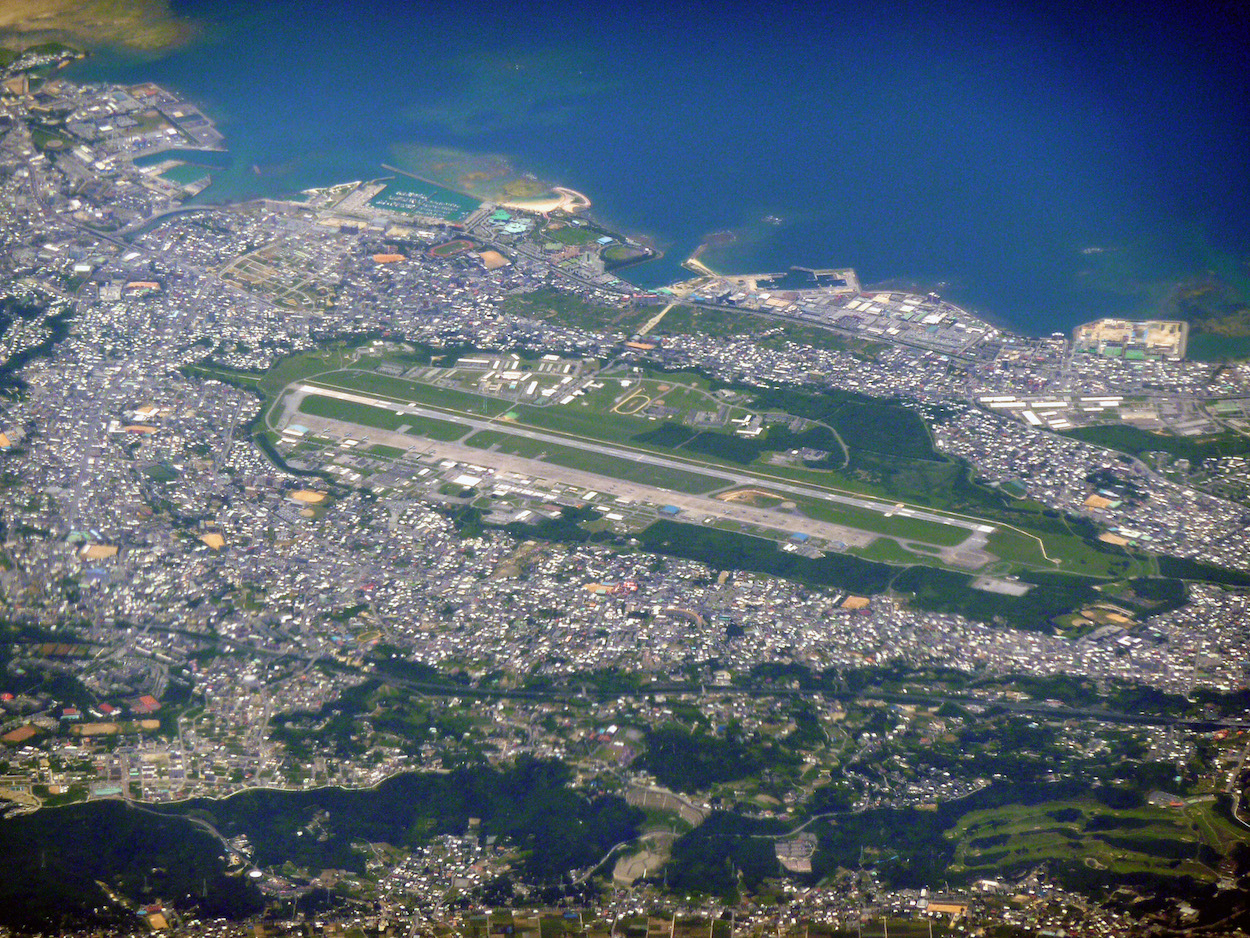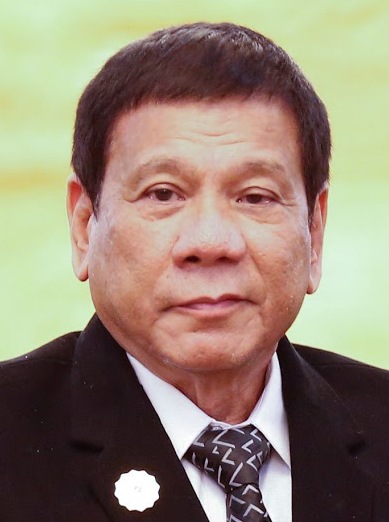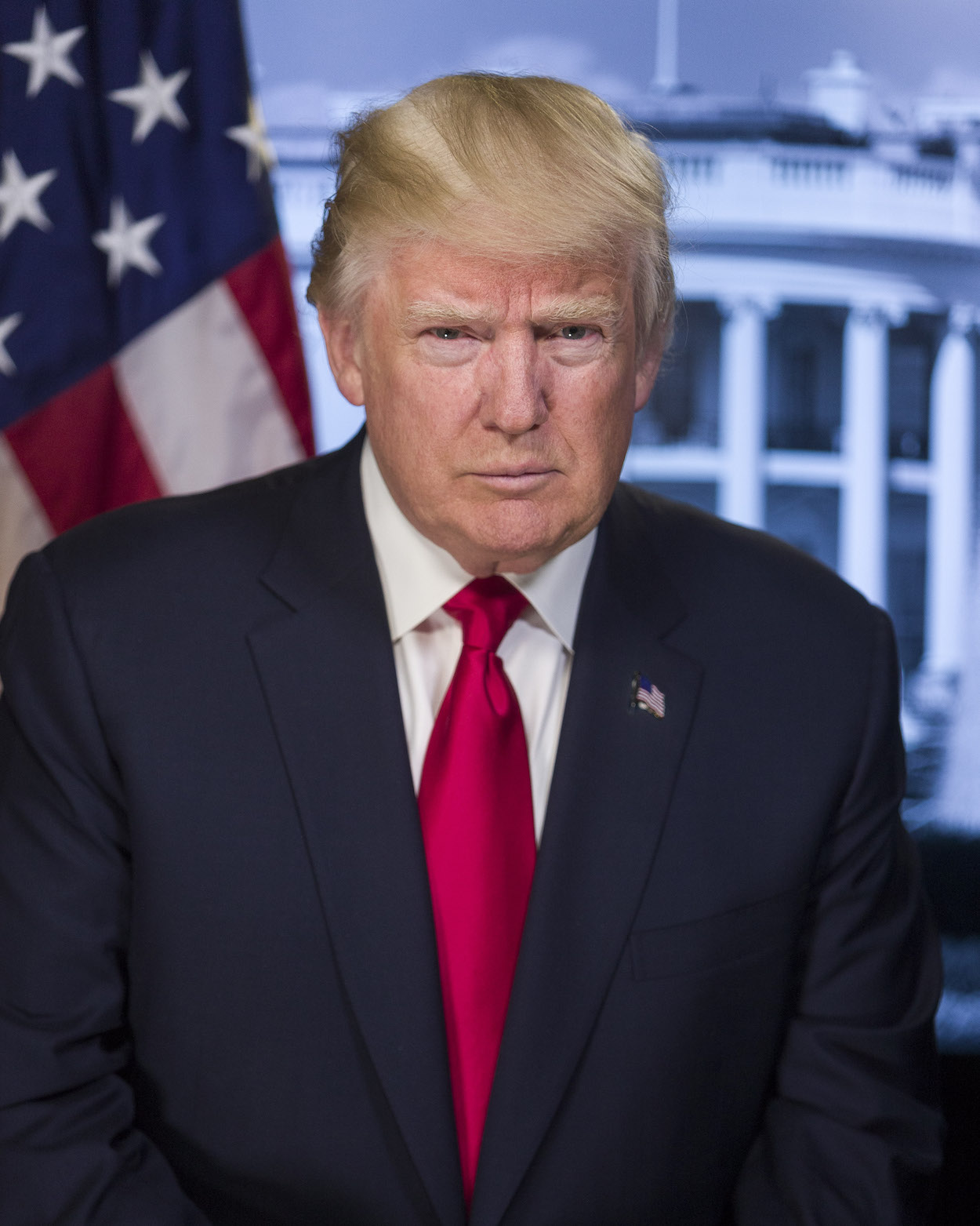by Brian Hioe
語言:
English
Photo Credit: Sonata/WikiCommons
WHERE INTERNATIONAL politics is concerned, perhaps one should not be so surprised at the amount of ideological thinking or wishful thinking which passes for objective analysis. Even more galling is when one makes an argument based on objective, non-disputable facts only for some who oppose one’s argument on an ideological basis to accuse you of making an argument only on the basis of ideology and not on the basis of facts—because of their own ignorance and their ideological blindness more than anything else.
Such were the reactions to a recent article of mine regarding John Bolton’s recent article in the Wall Street Journal calling for American bases in Okinawa to be moved to Taiwan, as a way to counter growing Chinese influence in the Asia Pacific and defend Taiwan from Chinese aggression. As I argued, while some individuals may see this as an end-all-be-all solution to Taiwan’s threat from China, my view was that this might prove provocative of China, that American bases would probably be viewed in an ambivalent light by Taiwanese over time and possibly a cause of protest, and that this would be a subordination of Taiwanese sovereignty to American sovereignty.
 John Bolton. Photo credit: Gage Skidmore
John Bolton. Photo credit: Gage Skidmore
But, of course, those who are committed to the view that American bases in Taiwan are the best solution for Taiwan to defend itself reacted strongly against my argumentation, perceiving this as my making an ideological argument due to my left-wing political views, and perceiving this as my opposition to American bases in Taiwan. Thus, unsurprisingly, my piece saw outraged reactions from individuals, such as Lai I-Chung, director of the Department of Chinese Affairs of the DPP, among others.
However, I was neither making an argument for or against American bases, except to observe that this were things which would almost certainly happen, as based on responses to American bases globally. Obviously there was a way in which my ideology guided by thinking. But this seemed to me like a rather objective argument which did not actually take any real ideological stance, seeing as it was founded entirely on the facts. The fact that my argument provoked such outrage is in fact telling about the amount of delusion which persists among analysts of Taiwan regarding Asian Pacific politics.
The Broader Pattern of Protests Against US Bases in the Asia Pacific
APPARENTLY I WAS expecting too much of purported Taiwan experts to at least have basic knowledge of the domestic politics of even just Taiwan’s surrounding nations, with denials that American bases have caused protests in the Asia Pacific in some responses I received to my article. Due to the fact that murder and rape incidents of Okinawans, vehicle accidents have occurred repeatedly in past decades at the hands of American servicemen in Okinawa, forced relocation of residents due to base construction, and disruption to civilian life due to training exercises, rallies numbering in the tens of thousands have occurred in past decades in Okinawa.
Just half a year ago, in June 2016, some 60,000 individuals demonstrated in Okinawa against continued American military presence in Okinawa, a product of anger over the murder and disposing of the body of a 20-year-old Japanese woman by American base worker and former marine Kenneth Franklin Shinzato in May 2016. This event was further stoked by a vehicle accident in which a US air force worker collided with a vehicle while drunk in June 2016. Past years have seen even larger protest, with 90,000 demonstrating in 2009.
These were not the first incidents in similar vein to the 2016 murder, with the rape of a Japanese woman in her 20s in 2013 by two US Navy soldiers, a hit-and-run incident in which a US serviceman caused serious injury to a 67-year-old man in 2014, a hit-and-run incident which killed a pedestrian in 2009, two hit-and-run incidents involving the death of Okinawan schoolchildren in 1998 and 1996, the rape of a Filipina bartender in 2002, and the notorious 1995 incident in which two US servicemen abducted and raped a 12-year-old Japanese schoolgirl.
There are numerous other incidents which receive less reportage. While efforts have been made by the American military to prevent similar incidents from happening through sexual education training, American military training materials obtained through Freedom Of Information Act requests illustrate that American military training materials continue to demonstrate an “us versus them” mentality when it comes to the relation of Okinawans and American servicemen stationed in Okinawa.
Anti-American protests in South Korea have also occurred throughout the past decades of American military presence in South Korea. South Korea saw protests of up to 50,000 in 2002 after two 14-year-old South Korean girls were struck by a military vehicle and died. In general, as also occurred in Okinawa, what provokes outrage in the rape or murder cases or vehicle accidents caused by American servicemen is that these cases are often resolved through the court martial system, rather than through local legal authorities. That American servicemen ultimately receive what are perceived as lax punishments provokes further outrage with the perception that the American court martial system is acting in defense of American servicemen, with charges being dropped altogether against guilty parties or light punishments.
 Marine Corps Air Station Futenma. Photo credit: Sonata/WikiCommons
Marine Corps Air Station Futenma. Photo credit: Sonata/WikiCommons
Likewise, outrage occurs in areas where American bases are located due to the disruption to civilian life caused by forced relocations because of base construction or because of accidents with civilian deaths caused by training exercises. 2005 and 2006 saw the deployment of over ten thousand South Korean riot police to the city of Pyeongtaek because of demonstrations against forced village relocations, for example. Base construction in Okinawa with the relocation of Marine Corps Air Station Futenma has also led to protests in the past decades, seeing as the relocation of the base has been discussed for the past five decades, and residents of Okinawa have long complained about noise and chemical pollution from US bases.
Again, outrage against American bases is a sociological phenomenon, in which protests against American bases share certain sociological characteristics and are prompted by similar causes. It is not an ideological claim to suggest that they would cause similar protest in Taiwan. We do well to remember that Taiwan is a country in which all of society is in the uproar over incidents such as the death of military cadet Hung Chun-Hsiu under mysterious circumstances and the relocation of the Wang family from their home in Shilin—respectively, the death of one individual and the relocation of one family.
One could scarcely imagine the protests which would occur after a string of repeated incidents caused by vehicle accidents or murder killings, or in which an entire village is relocated for American base construction. In fact, as if some have suggested that with the DPP in power, the KMT may be able to capture Taiwanese civil society and guide it to oppose the DPP, as occurred with the “Red Shirt” protests under Chen Shui-Bian, this would probably be the best issue that the KMT could hook on, by flaming up anti-American sentiment within Taiwan, linking it with the DPP, and using this to carry out its pro-China agenda.
 Red shirt protests in 2006. Photo credit: Orion.tv/WikiCommons
Red shirt protests in 2006. Photo credit: Orion.tv/WikiCommons
Notably, American bases in Asia play a large role in shaping perceptions of America in the country in which they are based. This is true historically and in the present. America GI radio stations historically played a large role in introducing American culture into Asian contexts, as we see in a comparative study of post-World War II Asian music history, for instance. Indeed, many early Taiwanese perceptions of America were shaped by ICRT. Apart from that America is guarantor of independence from China, arguably one of the probable reasons why Taiwan seems to have less unambiguously pro-American views that other Asian countries at present is because Taiwan has no American bases within it currently.
Yet, of course, due to their ideology which sees American bases in Taiwan as a permanent way for Taiwan to maintain its independence from China, individuals are prone to ignoring what is inconvenient to their worldview in regards to possible backlash that American bases would provoke. And it is further ironic that if I am accused of shaping the facts to my ideological worldview instead, this only reflects the apparent complete ignorance about Taiwan’s surrounding countries by supposed experts or their willingness to disregard facts that puncture their wishful thinking.
Stranger still is when supposed “experts” attempt to dismiss the importance of these protests within Japanese and South Korean politics by claiming that “people protest for all sorts of reasons” and that “correlation does not equal causation” or to simply dismiss demonstrators as leftists or China sympathizers. Apart from the obvious fact that when people protest about an issue in the tens of thousands, that generally means that a large section of society has been galvanized about an issue and not just a vocal minority, because of repeated controversy, American bases are repeatedly a contentious issue every time elections in Japan and South Korea are held. If Taiwan experts are not aware of this, they fail to understand a key issue of Japanese and South Korean domestic politics. Never mind the geographic proximity of these countries to Taiwan and their shared status as countries facing the threat of China which are under the American umbrella of influence.
 Rodrigo Duterte. Photo credit: Presidential Communications Operations Office
Rodrigo Duterte. Photo credit: Presidential Communications Operations Office
Indeed, to pose a more dramatic example taken from Southeast Asia rather than East Asia, if the appearance of as seemingly irrationally anti-American an individual as Filipino president Rodrigo Duterte has caught international relations experts by surprise, this should come as no surprise. The Philippines has its own history of scandal over vehicle accidents, incidents of rape, or killings committed by US servicemen, the most contentious of which in recent memory may have been the 2014 killing of 26-year-old Filipina trans woman Jennifer Laude by a US serviceman and a 2005 gang rape case.
Larger American bases in the Philippines were closed after 1992 following a vote by senate, due to anti-American sentiment after incidents over past decades and some odd fifty years of protest, though this did not end substantial security ties between the US and the Philippines as some experts then predicted or resolve America’s troubled relation with the Philippines. Indeed, Rodrigo Duterte is the first Mindanaon president in the history of the Philippines. Due to the repeated history of American military intervention and continual American troop presence in Mindanao, it is really no surprise that Duterte would begrudge America so and this would come to influence his foreign policy so.
Blindness About The Subordination Of Taiwanese Sovereignty To American Sovereignty
NEVERTHELESS IT also proves strange to me that supposed experts would somehow dispute my claim that American bases in Taiwan would subordinate Taiwanese sovereignty to American sovereignty, in the sense that countries with American bases on their soil have their foreign policy largely affected by American influence. Lai I-Chung, for example, would dispute such claims by claiming that status of forces agreement (SOFA) between Germany or Italy and the United States can be terminated and are between equal nations. Moreover, obviously it is that Taiwan had in the past hosted US bases upon its soil.
To begin with SOFAs are not terminated so easily. Pretty words about the theoretically equal status of nation-states as parts of the international community aside, where the realities of global geopolitics are concerned, America can have 800 bases in over 70 countries only because it is the world’s most powerful country and the world hegemon. Breaking a SOFA with America risks angering the world’s superpower and to think otherwise is to miss something which should be quite basic about how world geopolitics fundamentally works in favor of wishful thinking about the world. In a word, this is realpolitik. Power relations between nation-states are always unequal. Taiwan is hardly the equal of America in international affairs, given the vast disparity in political and economic power between America and Taiwan. God help anyone who believes otherwise.
 Photo credit: Photo Phiend/Flickr
Photo credit: Photo Phiend/Flickr
But such views reflects not only a misunderstanding of global politics and history, but also of Taiwan and other Asian nations’ relation with the international community writ large. Although after World War II, America also allied Germany, Italy, and Japan alike as former Axis powers, America took a markedly proactive role in the post-war reconstruction of Asian countries that was far different from the America-aided reconstruction of Europe through the Marshall Plan. Rather, with its eye on Asia as a battlefront in the looming Cold War with Soviet Russia immediately after the victory of the Allied powers, America sought to build Asia as a bulwark to contain “communist” powers as China and Russia. And so America’s relation with Asia Pacific countries is and has always been far different from its relation with European countries. Obviously, Taiwan has an even more tenuous position than other Asia Pacific countries as one which is not acknowledged by most countries in the world.
And it is altogether bizarre that America’s relation to Asia Pacific countries is not seen as infringing upon their sovereignty, Taiwan or otherwise, as a product of America’s particular historical relationship to Asia Pacific countries. For past decades until Shinzo Abe managed to win popularity for his reinterpretation of Article 9 of the Japanese constitution, despite having a de facto military, Japan was not legally allowed to wage war except in defense, in large part because America wished to prop up Japan as a bulwark against Russia and China immediately after World War II but did not wish to frighten off Asia Pacific allies which had just been at war with Japan. Obviously, this infringes upon Japan’s sovereignty when even just recently Nazi Germany and fascist Italy were allowed to have an army again after World War II but Japan never was.
Moreover, command of the South Korean military shifts to American control in wartime, as this is the strange case in which a country’s army reverts to the control of another country’s army in wartime. This is controversial in South Korea, but while timelines for ending this practice have been posed for past decades, the timeline is continually delayed. It is currently claimed that this practice will come to an end in 2020, but it is doubtful whether this will actually happen. Another postponement seems likely. Again, this is a clear infringement upon South Korea’s sovereignty.
Far closer to home, was it not that America backed KMT rule in Taiwan for so many decades, because it was convenient for American foreign policy aimed at containing China? Without American support, the KMT could have never maintained itself in Taiwan. Does America not continue to suspend Taiwan in the diplomatic limbo of strategic ambiguity regarding its Taiwan stance in order to maximize its geopolitical options in the Asia Pacific? America also sometimes extracts economic concessions out of Taiwan in return for tentative security promises through arms sale of American military equipment or allowing American imports of controversial products such as pork which is not approved in 180 of the world’s 200 or so countries. And America is also happy to constrain moves by Taiwan which could have allowed Taiwan to take a more independent foreign policy from America, such as intervening to halt Taiwan’s nuclear arms program. Although nuclear arms proliferation may have not made Taiwan or other Asia Pacific nations any safer but only heightened the risk of nuclear war in the Asia Pacific, this was an infringement on Taiwan’s sovereignty nonetheless.
Should it not be already blindingly obvious that, whether American bases come to Taiwan or not, America already infringes on the sovereignty of Taiwan and other Asia Pacific countries and has done so for past decades? Perhaps we should not be so surprised that pro-Taiwan political actors have historically been so blind to America’s role, then, whether from the DPP or otherwise. Namely, wishful thinking or ideological mystification generally tends to prevail over what should be obvious realities. If these are what Taiwan’s experts on international relations are blind to about the realities of global geopolitics, it is no surprise that Taiwan has failed to advance its position in the international community for past decades.
Indeed, even with discussion of moving American bases to Taiwan, American commentators generally spoke of the issue as though Taiwan had no say in whether it wanted American bases in Taiwan or not, with the underlying presumption that Taiwan would just go along with anything America wanted. For example, South Koreans have in recent years actually sometimes demonstrated against equipment upgrades of the American military in South Korea. Apart from concerns about noise or chemical pollution, this is sometimes with the view that installation of the THAAD missile system would be too dangerously provocative of China.
Again, this cannot be dismissed as just sympathy to North Korea or such protests being led by leftists. Brinksmanship is not always a winning strategy and members of South Korean society may take this view, but this is popular dissatisfaction that the South Korean government and American military have been all too happy to shrug off. Yet what if Taiwanese decided similarly? Tellingly, that never at all once came up in discussion of the issue as a question at all.
Conclusion
A FINAL QUESTION worth asking is whether there is any real possibility of American bases being moved from Okinawa to Taiwan, as Bolton suggested in his article. For example, something that proponents of this idea probably also do not realize because of their blanket dismissal of American base opposition in Japan is that Shinzo Abe may actually support moving the bases from Okinawa to Taiwan precisely because of strong opposition to American bases in Japan. American bases being moved out of Okinawa would get rid of a troublesome political issue for him. And because Abe has made it his longstanding ideological crusade to rearm the Japanese military, without American troop presence in Japan to ward off the threat of China, this makes his task of rearming the Japanese military that much easier through waving around the threat of China now that Japan no longer has American troops in Okinawa to defend from China. Presumably, many Taiwan experts did not realize this, due to the poor understanding of Japanese domestic politics they have evidenced so far.
As Timothy Rich notes wisely in the Taiwan Sentinel, before anyone gets carried away with wishful thinking about American bases in Taiwan, certain preconditions need to be met for this to become legally possible, including upgrading Taiwan from its current non-recognized status. As long as this does not happen, American bases in Taiwan are unlikely no matter what the Trump administration may claim, with its generally poor understanding of law.
 Donald Trump. Photo credit: White House
Donald Trump. Photo credit: White House
Moreover, given the timing of his article only a few days before Donald Trump took office, it is very likely that Bolton raised this idea in the Wall Street Journal a few days before the start of the Trump presidency as a trial balloon to see how it would be perceived by Americans. While many Taiwanese tripped over themselves out of excitement at the idea and China was predictably condemnatory—though it notably reacted with the assumption that Taiwan would welcome the idea—there were not many reactions from the American public. If this was a trial balloon, there was not exactly any widespread opposition to the idea or any reactions, leading one to question whether this was a successful trial balloon or a failed one.
However, this all may have been missed by many Taiwanese foreign affairs experts, who sometimes do not yet realize that the Trump presidency is substantially different from a traditional Republican presidency. Taiwanese foreign affairs experts historically have sometimes have a overly simplistic understanding of American politics, broadly dividing American politicians into the categories of individuals who are “longtime friends of Taiwan” and those who are not, with the former thought to be political infallible in their support of Taiwan. Bolton is seen as a “friend of Taiwan” and so he is implicitly trusted by Taiwanese foreign affairs experts as a member of the Trump administration, with little thought to that Bolton may have hitched his wagons to dangerous political forces in exchange for a shot at influencing high levels of political decision-making.
We shall see. But with the introduction of the idea into the political discourse, one expects to see broader circulation of the idea among military experts and others. We will see, however, if they make the same ideological oversights they did this time—or if they lash out against those who simply try to point out the facts and claim that it is in fact they who are guided by ideology.

